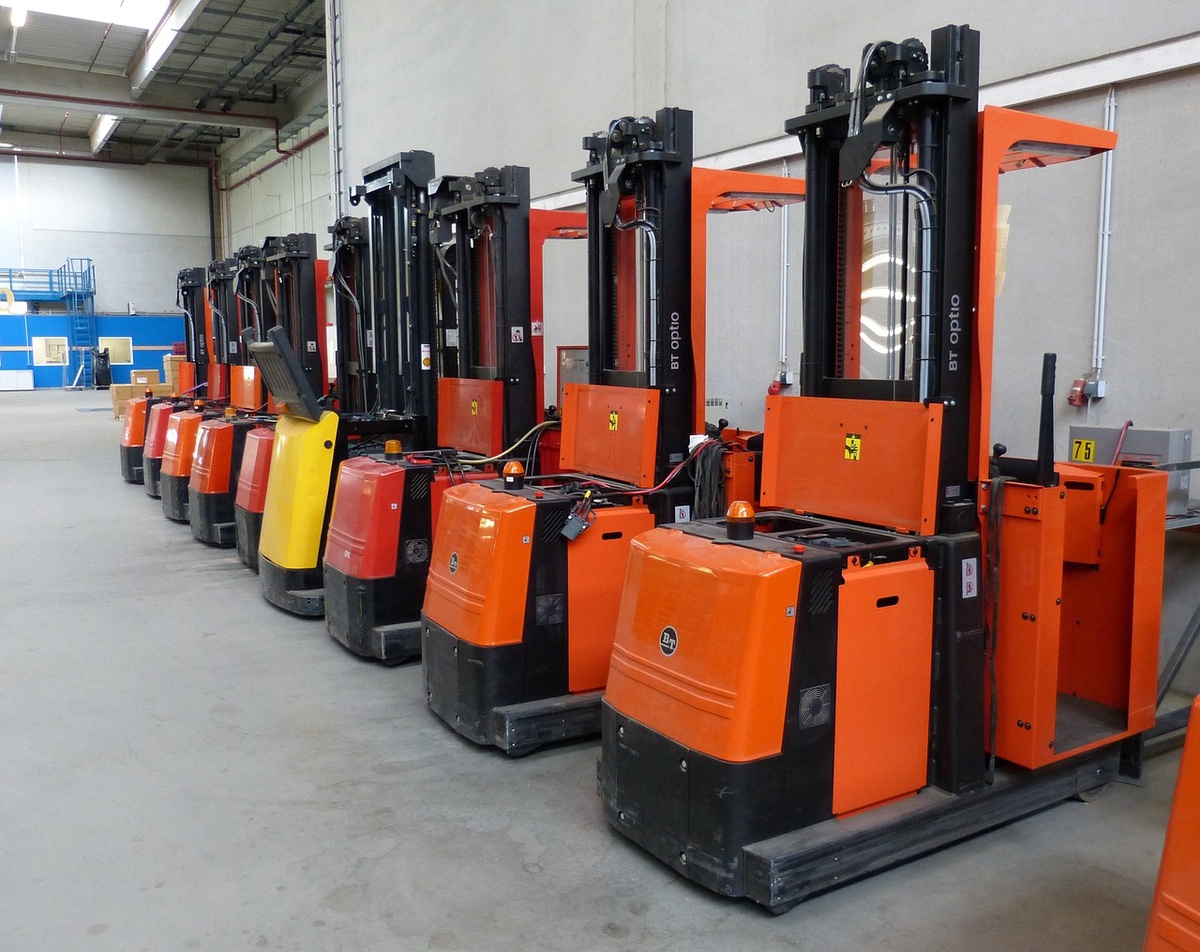The logistics industry is the backbone of the global economy, facilitating the movement of goods and materials between countries and continents. Yet, as essential as it is, cargo handling can often be a grueling task, with manual labor being slow, time-consuming, and sometimes dangerous.
With so many moving parts, how can businesses optimize cargo handling efficiency while ensuring safety for their employees and cost-effectiveness for their operations?
The answer lies in the innovative use of forklift technology. This powerful tool transforms cargo handling, helping businesses improve their bottom line, reduce costs, and boost productivity. By leveraging forklift technology, companies can reduce the time required for loading and unloading cargo, minimize maintenance costs, and reduce the risk of accidents, among other benefits.
In this blog post, we will delve deeper into the advantages of forklift technology and explore how it can revolutionize cargo handling for businesses in the transportation industry.
Forklift Technology: An Overview
Forklifts are a type of powered industrial truck designed to lift, move and place heavy loads. They are widely used in the manufacturing, warehousing, and transportation industries. The first forklifts were developed in the early 1900s and have since undergone significant technological advancements.
Modern forklifts are equipped with various technologies, such as hydraulic systems, electric powertrains, and sensors that enhance their performance and safety. Additionally, some forklifts are designed for specific applications, such as narrow aisle forklifts for use in warehouses with limited space.
USA transport companies could leverage forklift technology to improve their cargo handling efficiency and safety. Forklifts equipped with hydraulic systems, electric powertrains, and sensors can enhance their performance and safety, making them more efficient and customizable for different industries and applications.
Benefits of Forklift Technology in Cargo Handling
-
Increased Efficiency
One of the significant benefits of forklift technology is increased cargo handling efficiency. Forklifts can handle loads of different sizes and shapes, allowing for faster and more efficient loading and unloading of cargo.
Additionally, forklifts are designed to operate in tight spaces, making them ideal for use in warehouses and shipping yards where space is limited.
Using forklifts, cargo can be moved quickly and safely, minimizing the time required for loading and unloading. This can result in significant cost savings for businesses, as labor costs are reduced and the number of trips required to move cargo is minimized.
-
Improved Safety
Forklift technology also improves cargo handling safety. Forklifts are designed with safety features such as seat belts, backup alarms, and safety lights that alert operators to potential hazards.
Additionally, forklifts are equipped with sensors that monitor the forklift's operation and alert the operator if the forklift is approaching a potential safety hazard.
Furthermore, forklifts can be fitted with cameras and other safety features that improve visibility and reduce the risk of accidents. This can lead to a safer work environment for employees, reducing the risk of workplace injuries and increasing overall productivity.
-
Reduced Maintenance Costs
Forklift technology also reduces maintenance costs. Modern forklifts are designed with durable components that require less frequent maintenance.
Additionally, forklifts are equipped with onboard diagnostic systems that allow for quick and easy identification of maintenance issues.
This means that maintenance can be scheduled in advance, reducing the risk of unexpected breakdowns and minimizing the downtime required for repairs. With reduced maintenance costs, businesses can save money and improve overall productivity.
-
Improved Operator Comfort
Forklift technology also improves operator comfort. Modern forklifts are designed with ergonomic features such as adjustable seats, climate control, and noise reduction systems that make them more comfortable to operate. This can lead to less operator fatigue and improved overall productivity.
In addition, the use of forklifts can reduce the physical strain on workers, reducing the risk of workplace injuries and improving employee morale.
Furthermore, advancements in forklift technology, such as electric-powered models, contribute to a cleaner and greener work environment by reducing emissions and noise pollution associated with traditional gasoline-powered forklifts. This promotes sustainability and aligns with companies' efforts to adopt eco-friendly practices.
-
Increased Sustainability
Finally, forklift technology can also improve sustainability. Electric forklifts, for example, produce zero emissions, making them an environmentally friendly alternative to traditional diesel-powered forklifts.
Additionally, electric forklifts require less maintenance and have a longer lifespan than diesel-powered forklifts, reducing the overall environmental impact.
Implementing Forklift Technology in Cargo Handling
To implement forklift technology in cargo handling, businesses should consider their specific needs and the type of forklift most suitable for their operations. Factors to consider include the size and weight of the loads to be handled, the warehouse or shipping yard layout, and the level of operator experience required.
Businesses can work with forklift manufacturers to select the right forklifts for their operations. Manufacturers can provide guidance on the type of forklift that would be most suitable and provide training for operators to ensure the safe and efficient use of the equipment.
In addition, businesses should ensure that their facilities are equipped with the necessary infrastructure to support forklift technology. This includes adequate charging stations for electric forklifts and appropriate storage areas for the forklifts when not in use.
Conclusion
In conclusion, forklift technology is a critical component of efficient cargo handling. With increased efficiency, improved safety, reduced maintenance costs, improved operator comfort, and increased sustainability, forklift technology offers significant benefits for businesses in the transportation industry.
Businesses can work with forklift manufacturers to select the right forklifts for their operations and ensure that their facilities are equipped with the necessary infrastructure to support forklift technology. By implementing forklift technology, businesses can improve cargo handling efficiency and safety, reduce costs, and increase overall productivity.
Authors bio
Lucas Green is a young digital marketing enthusiast from Phoenix, Arizona, US. Passionate about graphic design, social networking, content writing, and business in general. In his spare time, he writes extensively about graphic design, traveling, and business for SEO Magazine- SEO Turnover


No comments yet